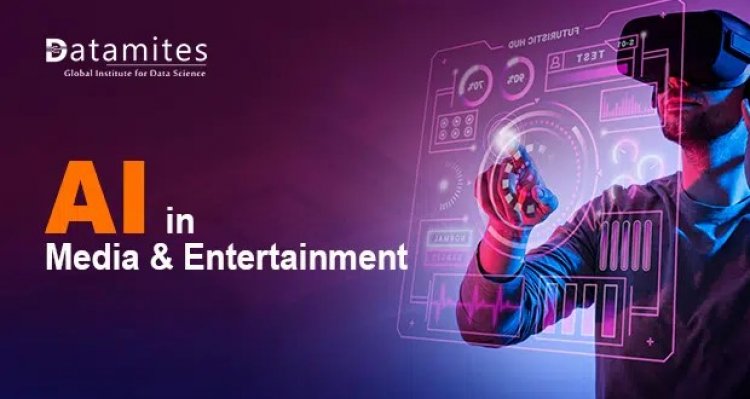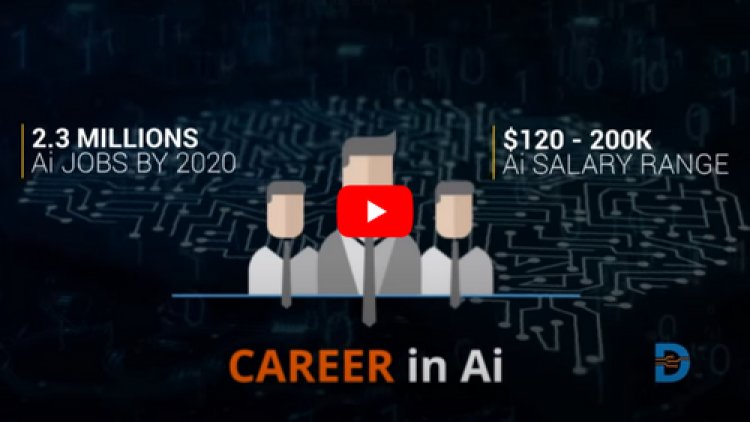Artificial Intelligence In Media and Entertainment Industries?
Artificial Intelligence is revolutionizing the media and entertainment industries by enhancing content creation, personalization, and audience engagement. From AI-generated scripts to immersive experiences, it is reshaping the future of digital entertainment.

According to statistics, the worldwide AI market in the media and entertainment industry would grow from US$1.8 billion in 2018 to US$8.4 billion in 2023!
The way content is created and distributed in the global media and entertainment sector is undergoing a tornado of change. Content creation tools, including high-resolution cameras, information creation software, and cellphones, are becoming more widely available, allowing almost anyone to produce and put up content, whether in written, audio, or video format.
The increasing use of AI in media and entertainment, gaming, fake storey detection, plagiarism detection, personalization, production planning and management, sales and marketing, talent identification, and other industries is assisting the advancement of AI in the media and entertainment industries around the world.
Customers drive the media and entertainment industry’s decision-making process because they understand that they must stay up with their customers’ interests. Businesses are being pushed to become more customer-centric as a result of digital transformation, and consumer AI in e-commerce, retail, mobile, social, and other sectors is now primarily focused on improving the customer experience.
Refer the article to know How to become an Artificial Intelligence Engineer in 2022?
Artificial Intelligence for the media and entertainment industries –
- Streaming in Real-Time
The broadcaster and the customer both benefit from real-time streaming. AI aids in the personalization, packaging, and transmission of content in real-time, enhancing the viewer’s experience. It also helps to increase ad sales by allowing for tailored ad insertions. Live sports event ad earnings are maximised with digital billboard replacement options.
- Content and suggestions that are tailored to you
Audio and visual content can be customised in a variety of ways, from music apps to OTT platforms, based on the user’s preferences and previous experiences.
Advanced machine learning techniques and deep learning networks are used by AI to provide users with tailored content. And providing customers with a more tailored experience helps media and entertainment firms grow their user base and provide better service than their competitors.
- Predictive Analytics
Predictive analytics can be used to discover which material is chosen by audiences by analysing viral media content. Advanced analytics skills are crucial when it comes to changing content, marketing strategies, and product offerings.
Advertising over the internet to a specific audience.
In the media sector, online advertisements play an important part in business development and branding. Furthermore, AI is being utilised to make online advertising more exact and effective with a targeted audience in order to increase conversion rates.
- Controlling the Distribution of Online Content
Regulatory authorities are required to monitor such content. Here, too, AI aids in the detection and filtering of such problematic content. Before showing such content, AI can detect the user’s age and gender, or employ an automated content moderation service to regulate undesirable content before broadcasting, utilising audience category ratings such as suitable for children or only for adults.
- Contents Categorization and Classification
Data is created in seconds on the internet, and in a wide variety of formats. It might be a mammoth undertaking to organise and categorise content into categories. In this circumstance, artificial intelligence (AI) comes into action, assisting in the successful classification of content into appropriate categories, allowing users to quickly locate their desired topic of interest, better customer engagement, improved and appealing targeted content, and increased monetization.
- Automated transcription and subtitles
Aside from that, AI-based technologies such as natural language processing using machine learning and deep learning are used to transcribe movies, music videos, and TV episodes into many languages. The voice of movies is translated into several languages with subtitles and audio annotations to make it more accessible to a wider audience and increase user interaction.
- Chatbots that can be customised for virtual support
In the media and entertainment industries, AI-based virtual help also exercises a prominent role. Customers are assisted by OTT and online music platforms in resolving their issues and providing a hassle-free music experience.
- Controlling and detecting bogus content
Aside from actual news articles, several websites publish and disseminate fake news in order to agitate the public about specific events or societal issues. AI is assisting in the detection and control of such content, as well as assisting online platforms such as social media site owners in the moderation or removal of such content before distribution.
- Tags in metadata
With so much data being created every minute, media company employees face a massive burden in recognising these items and making them easily accessible to consumers. This is because, in order to classify and tag items, circumstances, or locations, this technique needs watching videos and recognising items, situations, or locations.
AI can help you save time and increase the quality of your metadata in some circumstances. Most of the time, intelligent systems can help you complete jobs that you wouldn’t be able to do quickly if you were to do them manually. Better yet, these systems learn as they go, allowing them to give better and more meaningful outcomes over time. The machines can also assist because they never get tired or bored and can reduce errors at the same time.
- Computer and video games
In games, AI is frequently employed to control non-player characters (NPCs). NPCs respond to a player’s activities and movement. The role of AI in modern games has gotten even more important. AI can predict a player’s next move by analysing their previous actions. Changes in a gamer’s behaviour in various settings can also be detected using AI models.
You can also refer:
Artificial Intelligence Certification Course Fee in 2022
What is the Salary of an AI Expert in the Asia Pacific Region?
Conclusion
According to market research projections, the global sales of the Media and Entertainment business are predicted to reach about USD 2.6 trillion by 2024, up from USD 2 trillion in 2020.
In the following years, AI’s involvement in media and entertainment is projected to expand even further. Media and entertainment organisations are maximising their business performance by enhancing the customer experience and entertainment value given with better efficiency by investigating and experimenting with AI use cases.
DataMites Training Institute provides a globally accredited Artificial Intelligence course, ensuring industry-wide recognition. Covering machine learning, deep learning, and AI tools, the program includes hands-on projects and expert mentorship. With flexible learning options—both online and classroom—it caters to beginners and professionals alike. Equipped with a prestigious certification, DataMites prepares learners for successful AI-driven careers.
Artificial intelligence has a flashing future, with the Bureau of Labor Statistics estimating a 31.4 percent rise in jobs for data scientists and mathematical science experts, both of which are critical to AI, by 2030. DataMites is the leading provider of Artificial Intelligence Courses, including Artificial Intelligence Engineer, Artificial Intelligence Expert, Artificial Intelligence Foundation, AI for Managers, and Certified NLP Expert. We also provide training in data science, machine learning, python, tableau, and others!
Watch the video : Artificial Intelligence Course Introduction.

 Thushara C.P
Thushara C.P 